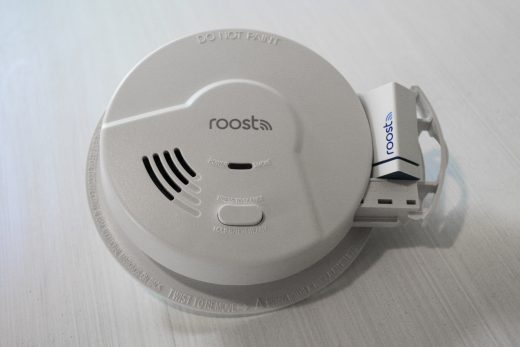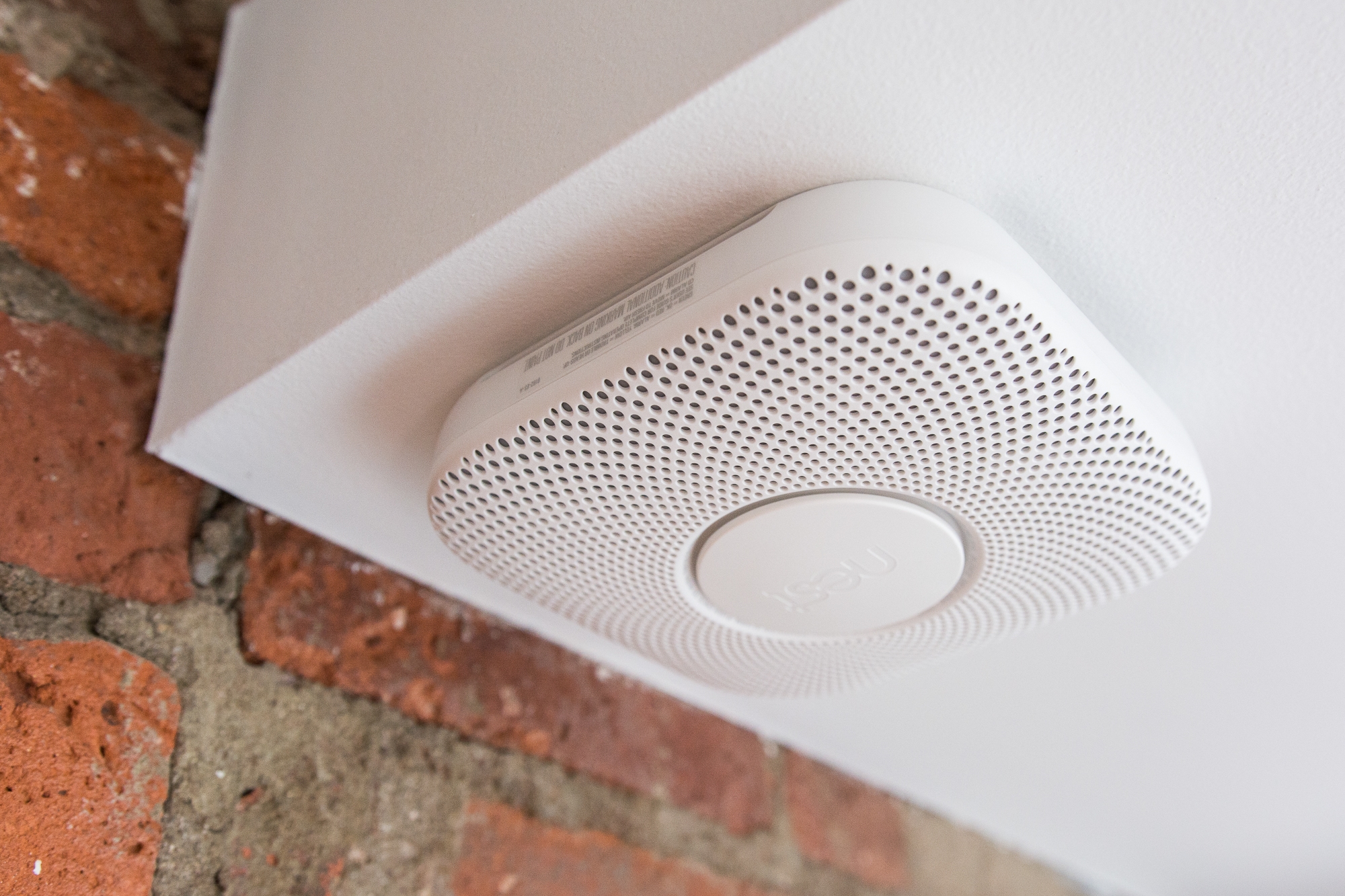The best smart smoke alarm
By Jennifer Pattison Tuohy
This post was done in partnership with Wirecutter. When readers choose to buy Wirecutter’s independently chosen editorial picks, it may earn affiliate commissions that support its work. Read the full article here.
It’s hard to overstate the importance of having functioning, reliable smoke detectors in your home. From 2007 through 2011, almost a quarter of all home fire-related deaths in the US occurred in homes with nonworking smoke alarms. Although any functioning smoke alarm will alert you to problems if you’re at home, a smart alarm can alert you anywhere your smartphone has an Internet connection. For our tests, a former firefighter installed smart smoke alarms in her own home—both hardwired versions and battery-powered models—to find the best one for keeping you informed about your home’s status, whether you’re there or away. After mounting them to ceilings and walls, blowing smoke at them, fiddling with their batteries and accompanying apps, and generally pushing their buttons, we found that the second-generation Nest Protect smoke and carbon monoxide alarm is the best smart smoke alarm.
Who this is for
Among all the smart-home devices available today, a smart smoke alarm is probably the most important—even smart-home skeptics should consider getting one. Whether you’re across the street or across the country, a smart alarm will let you know (via your smartphone) when it detects smoke in your home. You can also remotely test the batteries or silence the alarm, as well as sync multiple smoke detectors across your home.
How we picked and tested
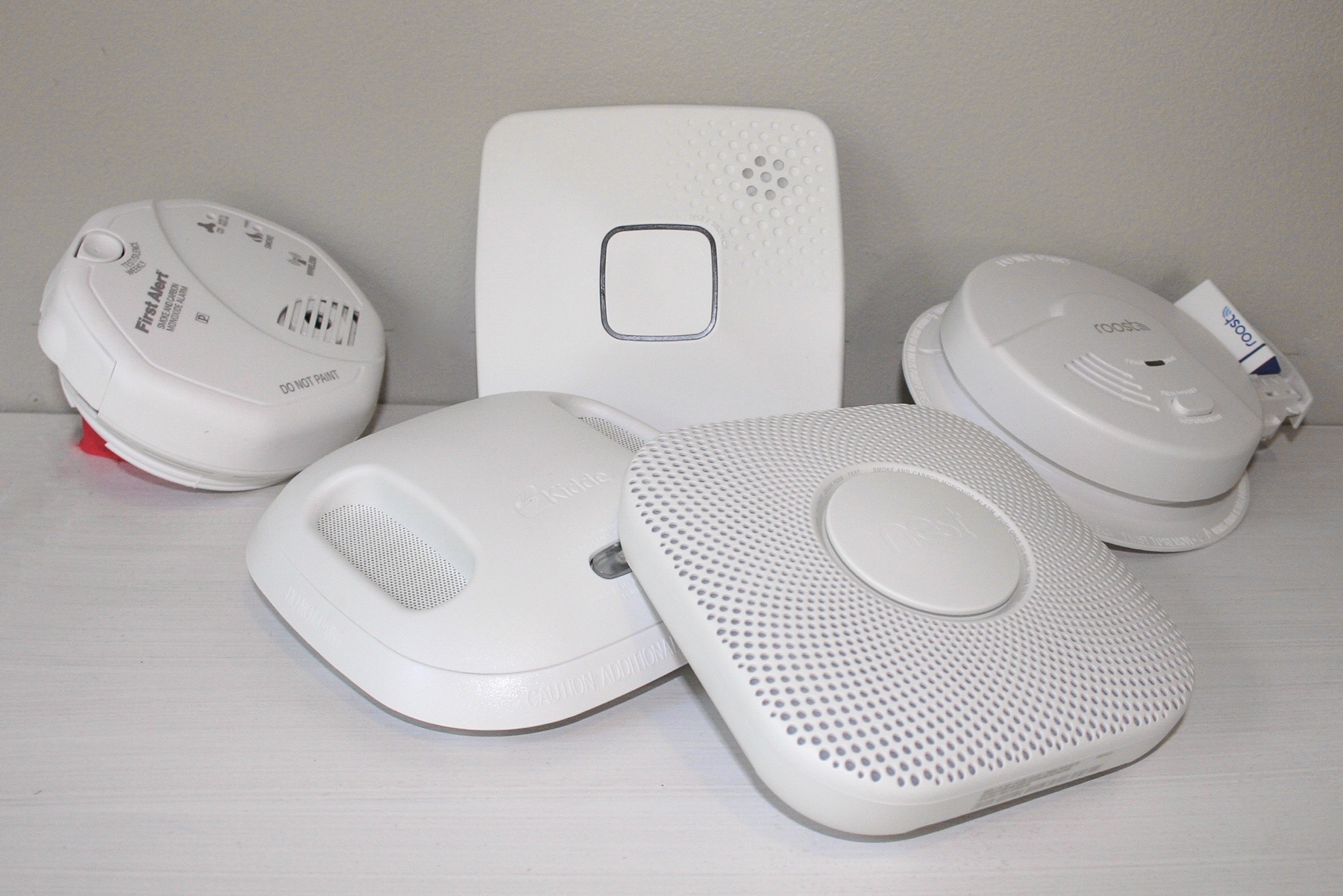
A smart smoke alarm should alert you on your smartphone when it senses smoke, as well as tell you which room is in danger; it should also include intelligent low-battery alerts and remain easy to silence safely from the app. Some other features worth having include voice alerts, self-testing and reporting, and the ability to reach an emergency-contact person automatically if you don’t respond.
Most important, an alarm should connect with other alarms in the home, either wirelessly or (if your home supports it) through a hardwired connection. This means that when one alarm senses danger, all of the alarms will sound. This is a crucial safety feature that can save you precious seconds in evacuating your home.
We tested seven smart fire alarms and similar devices that met these criteria by installing them in a two-story, detached home. We installed both battery-operated and hardwired versions (when available) and used their self-testing features to evaluate the effectiveness of their smart alerts and wireless interconnectivity capabilities. Additionally, we simulated smoke with each device to determine how well the alert features worked in a “real-life” scenario. We also tested each device’s companion app, evaluating the effectiveness and usefulness of added features like IoT connectivity.
Our pick
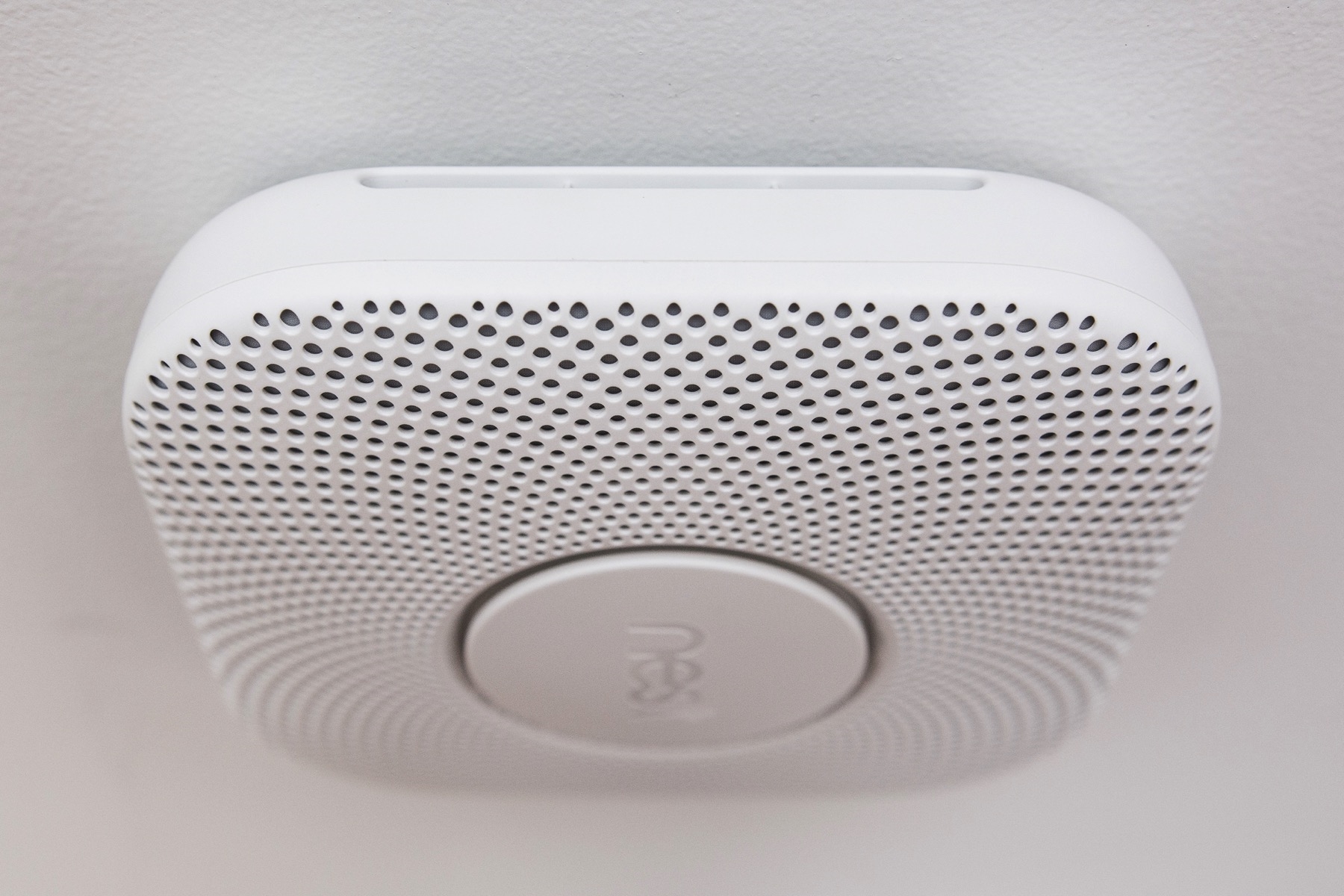
We think the second-generation Nest Protect smoke and carbon monoxide alarm is the best smart smoke alarm because it reliably and calmly alerts you to potential danger before the actually loud and grating alarm kicks in. It also informs you of problems such as a device malfunction or low batteries without waking you up at 2 a.m. You can silence nuisance alarms through its app, so you’re less likely to disable it in a fit of annoyance. On top of that, it connects wirelessly with other Protects to sound the alarm throughout your home, and it can integrate with other smart-home components such as security cameras or HVAC systems to further mitigate the dangers of a fire or carbon monoxide event.
The Protect’s sensors can detect carbon monoxide, heat, humidity, room occupancy, and ambient light. It also has the Split-Spectrum Sensor, a sensor unique to Nest that promises to detect fast-burning fires more quickly than traditional photoelectric sensors do. It also self-tests its functions every 200 seconds, in addition to performing a sound check once a month to test its speaker and horn. Colored status lights (green for good, yellow for problems) let you know the Protect is working properly.
Budget pick
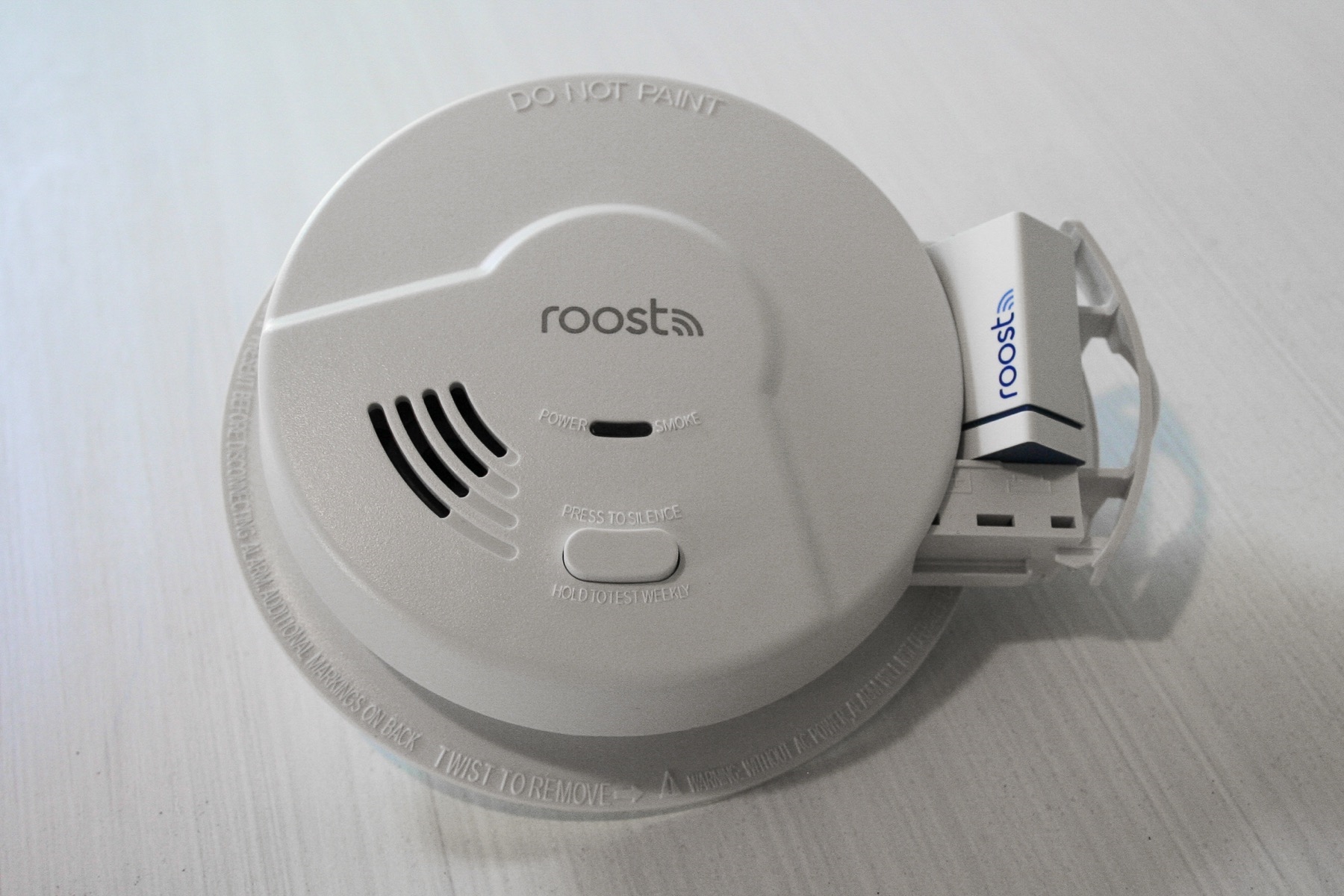
If notifications when you are away from home are your main priority, a Roost Smart Battery is an excellent, inexpensive choice. This 9-volt smart battery is not a smoke alarm itself (Roost sells actual smoke alarms, too) but thanks to its built-in microphone and Wi-Fi chip, it can turn any smoke alarm powered by a 9-volt battery or hardwired with a 9-volt backup into a smart one. Once connected to the Roost app, the battery will send you alerts when an alarm goes off, what location the alarm is in, when the alarm stops, and when the battery is running low. If you have a hardwired smoke detector system, you need to install only one battery to monitor the entire system.
Though Roost makes it easy and cheap to add whole-house interconnectivity to a hardwired system, the biggest flaw is its lack of wireless interconnectivity between battery-powered alarms. If a battery-powered alarm loaded with a Roost battery sounds, it will bleep away sadly on its own until the danger spreads in the direction of the other alarms, but at least you get an alert on your phone.
This guide may have been updated by Wirecutter. To see the current recommendation, please go here.
Note from Wirecutter: When readers choose to buy our independently chosen editorial picks, we may earn affiliate commissions that support our work.
(68)

